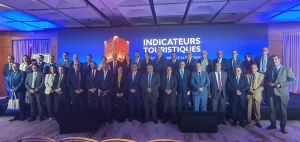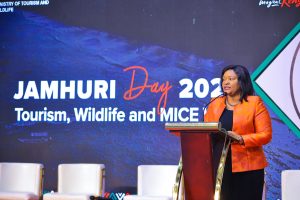It is believed that Africa’s business events industry can become self-sufficient, but it would need to tie up a few loose ends before it can realise that vision.
Business events experts from Africa unpacked the current state of the industry as an agent for economic recovery on a special CNBC panel discussion at Meetings Africa 2022. They looked at how infrastructure, associations and policymaking on the continent can make the industry self-sufficient.
Meetings Africa 2022 just ended at the Sandton Convention Centre in Johannesburg. The 16th edition of Africa’s premier business events trade show – a flagship of the South African National Conventions Bureau – looks to reignite the industry after two years of latency because of Covid-19 lockdown restrictions.
Infrastructure that enables business events
Nicanor Sabula, the Managing Director of the African Association Management Company, said that while Africa is an attractive destination for events, the infrastructure needs to be improved to enable meetings to take place. “Across the continent, infrastructure, venues, capacity, connectivity and roads need a lot of work. Good infrastructure enables meetings to happen.”
He added that air connectivity between major African cities needs a revamp for any country in Africa to attract international events. “If I want to connect to Burkina Faso from Kenya, I would have to fly via Europe.”
Associations need to be in the driver’s seat
Kwakye Donkor, the CEO Africa Tourism Partners, said a large number of opportunities will come from associations that have the ability to attract meetings to the continent. “There are thousands of associations on the continent and there are opportunities that they present.
Sabula said that associations play the role of facilitating conversations and are the core of the industry’s recovery from the Covid-19 slump. “They are entities with common dreams and visions. No one brings people together better than associations. I hope we can jump in proactively to tap into the opportunities in the association space so as to promote intra-African trade in goods and services. Associations must sit in driver’s seat to unlock these opportunities.”
A recent study by the International Congress and Convention Association (ICCA) found that there was a huge discrepancy between association needs and offerings from destinations.
Désirée Baltussen, Chief Business Development Officer at ICCA, said destinations must consider the needs of associations for an effective exchange of knowledge to take place. “It is about brainpower and if destinations take that into consideration, you will get cross pollination.”
Policymakers need to understand the industry
Donkor said public and private sectors lack the understanding of the business events industry and the value it holds, which has ultimately undermined the industry at policy level. “The policymaker has to create an enabling environment for industry to thrive. So if they do not understand the industry, it will be difficult to put the policies in place to make it thrive.”
Donkor was part of the Africa Tourism Partners who created the MICE Masterclass. Its intention is to bring together industry leaders, policymakers and entrepreneurs together to form a common purpose for the development of the business events industry.
Donkor commended Meetings Africa for being the kind of platform that helps reshape the understanding of the industry. “Meetings Africa and South African Tourism are case studies that we are getting the rest of the continent to learn from.”
He said Covid-19 has taught the industry the value of collaboration. “We are realising we can share insights hosting, and how this can be passed onto other countries so we keep the event on the continent. We all need to be retrained, not only on protocols but our approach to sales, bus dev, and engagement.”
Amanda Kotze-Nhlapo, the Chief Conventions Bureau Officer of the SANCB, observed that physical events have become smaller because of Covid-19 protocols but they are richer in content. She added that hybrid events would only hamper this approach. “We do not want virtual only. We need people to be together to come up with those innovative ideas. You cannot network on a hybrid meeting.”







